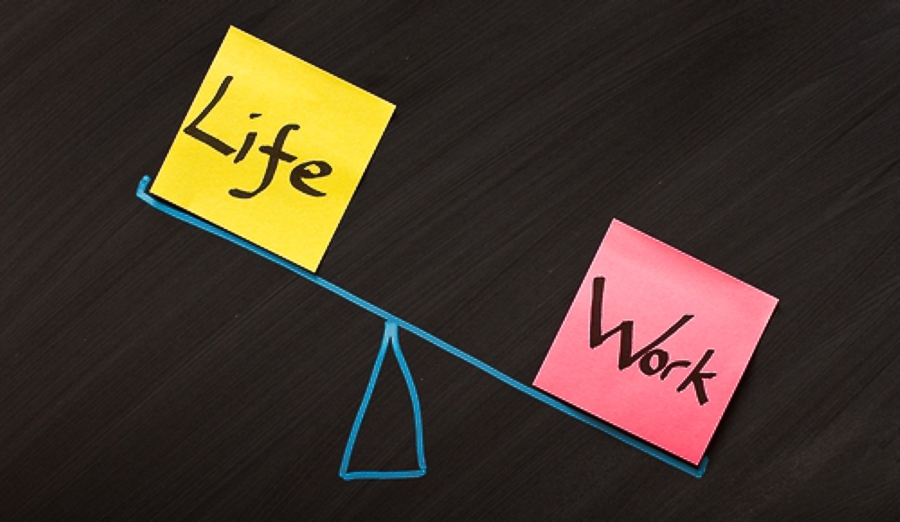
Work-life balance is still a concern in Malta. How can we achieve it?
by General Workers’ Union – Youths
[dropcap]A[/dropcap]s recorded by financial giants like Fitch and Moody’s the Maltese economy is currently going through the phase of growth.
Unemployment in Malta has, in these last few years, decreased. Figures published by Eurostat earlier in March show that Malta has the second lowest unemployment rate in the European Union. Youth unemployment has also registered a decline, and in this area Malta is doing better than EU28. This is essentially the result of various policies, which encouraged more school leavers to have the necessary skills to take up employment.
A downfall in Maltese economy, which is now being addressed, was the very low female activity rate in employment. Having an economy largely based on human resources, this put a huge weight on the finance of the country. Free childcare centres amongst other initiatives managed to alleviate some of the burden which encouraged some women to get back into the workforce and contribute to the economic stability of the country.
Nevertheless, work-life balance is still a concern in Malta. Business and economic growth is still given a lot of weight and this has certainly affected the quality of life of workers who have to work long hours in order to achieve financial security in order to for the family to live a good life. The quality of life of workers cannot be measured by numbers and statistics and even though statistics might show a decrease in unemployment, the quality of work is by far more important for the health and safety of employees.
In the EU, the maximum amount of working hours that a worker can be asked to work is forty (40) hours per week. Nevertheless, Malta was one of the countries which opted out of this ceiling and allows its workers to work a maximum of another eight (8) hours making it forty-eight (48) hours per week in total. This opt out was requested on the basis that it would harm the national economy. However, this has largely affected the work-life balance which is important for a good quality of life. There is still insufficient awareness of the negative consequences arising from working long or unsocial working hours, including increased risk of accidents due to fatigue, greater stress levels and other related problems. Consequently, the Maltese adult population still finds it very difficult to strike such an important balance especially those working in lower occupational work due to the lack of flexibility.
Whilst figures and statistics show a positive trend in employment sectors, we cannot take such success for granted. We must not forget that behind every statistic, there is a human being with different needs. We cannot lose focus on euphoric surveys and forget that out in the street, there are people who are not making ends meet. Statistics show a decline in poverty rates yet the State must continue its efforts to ensure that the economic fruits that the country achieved are distributed in a just manner, especially amongst the most vulnerable.
The economic growth that Malta experienced in the last couple of years has also led to new challenges, which entail maximum attention for society to grow and prosper. Recently, there were discussions on the imminent need to increase the minimum wage: several NGOs have been urging the government to introduce an 11% increase over three years to ensure a better quality of life.
The relatively low wages are certainly creating problems when it comes to property buying or leasing due to the exorbitant prices, which have shadowed the property industry in the last few years. This has left many first time buyers entering into high debts in order to afford buying an apartment whilst those who decide to lease are finding trouble to pay the high rents.
Malta needs to prioritise social wellbeing not less than its economic performance. It is essential that a socio-economic balance is respected. Furthermore, it is essential for Malta to safeguard its environment and heritage for the future generations.
I had corresponded in a lengthy manner on the topic, and, whilst the addressing of the conditions appears to be left in a queue, it is the culture of policy-makers [capitalists] that worries the layman to the point of adopting a marxist anti-trust approach to nihilism, and, progressive antipathy.
I observe a lot of people wearing make-up to cover their lies and others wearing shades to avoid admitting that their boss is not at the office, whilst underlying initiatives that never happen seem to be the greatest source of lack of motivation on this planet.
It is also theorised that money is scarce had we stopped making negative assumptions we would have realised that traditional banking was abusing of its depositors’ confidence in re-assuring itself big pay-outs and generous dinner dances for its staff, whilst the demise of availability and flexibility of staff leads senior management philosophers to adjust to reduced hours in order to allow for a life that is relatively less stressful.
Nonetheless provisions related to unfair terms and conditions appear to take place as we approach people who play hard to negotiate in a world where choice creates demands and impression-based clicks work both ways.
Quoting Tracy an American entrepreneur, words have no meaning to any legitimate argument “resist the temptation to defend yourself or make excuses.” [www.brainyquotes.com].
Finally, if we approach the dead-end situation of revolts that happened in the past, the policy of the activists will start resembling lyrics written by Sepultura, featuring a band that made money starting from the musical inspiration of Max et. al, the great Brazilian musician. I will allow you to do your research as explicit quotations might wrongly lead you that I am inciting civil unrest, whilst I am merely predicting it will happen. The law of numbers works, mate!
Give the man a doctorate, he made it!